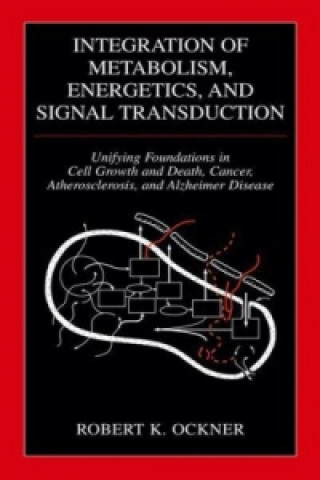
Kod: 01422056
Integration of Metabolism, Energetics, and Signal Transduction
Autor Robert K. Ockner
This book demonstrates how metabolism and energetics are directly linked to those signal transduction pathways that are essential to survival of the cell, the organism, and the species. Recurring patterns of interaction among meta ... więcej
- Język:
 Angielski
Angielski - Oprawa: Miękka
- Liczba stron: 387
Wydawca: Springer, Berlin, 2014
- Więcej informacji o książce

233.63 €
Dostępność:
50 % szansa Otrzymaliśmy informację, że książka może być ponownie dostępna. Na podstawie państwa zamówienia, postaramy się książkę sprowadzić w terminie do 6 tygodni. Gwarancja pełnego zwrotu pieniędzy, jeśli książka nie zostanie zabezpieczona.
Otrzymaliśmy informację, że książka może być ponownie dostępna. Na podstawie państwa zamówienia, postaramy się książkę sprowadzić w terminie do 6 tygodni. Gwarancja pełnego zwrotu pieniędzy, jeśli książka nie zostanie zabezpieczona.Przeszukamy cały świat
Zobacz książki o podobnej tematyce
-

Next Generation Transport Networks
121.31 € -

Lead-Free Electronic Solders
241.01 € -

Anxious Masculinity in Early Modern England
50.24 € -

Topology and Geometry
77.84 € -

At Home With Times Tables
6.97 € -

Entdecken und verstehen - Geschichtsbuch - Nordrhein-Westfalen 2012 - Band 2: 7. Schuljahr
30.42 € -

Road to Freedom
26.98 €
Podaruj tę książkę jeszcze dziś
- Zamów książkę i wybierz "Wyślij jako prezent".
- Natychmiast wyślemy Ci bon podarunkowy, który możesz przekazać adresatowi prezentu.
- Książka zostanie wysłana do adresata, a Ty o nic nie musisz się martwić.
Powiadomienie o dostępności
Wpisz swój adres e-mail, aby otrzymać od nas powiadomienie,
gdy książka będzie dostępna. Proste, prawda?
Więcej informacji o Integration of Metabolism, Energetics, and Signal Transduction
Za ten zakup dostaniesz 585 punkty
 Opis
Opis
This book demonstrates how metabolism and energetics are directly linked to those signal transduction pathways that are essential to survival of the cell, the organism, and the species. Recurring patterns of interaction among metabolism, energetics, and signal transduction are fundamental in diverse aspects of human health and disease. This book explores these phenomena in relation to cell growth and death, cancer, atherosclerosis and Alzheimer disease. Part I of the book explores the origins and theory of integration.§Topics covered in Part II include: nutrient and energy metabolism in cell proliferation; fatty acids and growth regulation; mitochondrial function in cell growth and death; metabolic effects of antiproliferative agents; fatty acids and mitochondria, cell growth and injury; metabolism and gene expression.§Part III of the book deals with energetics of neuronal activation; utilization of oxidizable substrates in the brain; astrocyte metabolism and astrocyte-neuron interaction; neuronal energy metabolism in the brain; astroctyes as metabolic buffer and mediator of neuronal injury; and metabolic factors in the pathogenesis of Alzheimer Disease.§"Dr. Ockner has written a fascinating and original book which explores potential metabolic links to neurodegeneration. He takes a fresh look at metabolic pathways involving interaction between astrocyte and neuron that are important for brain health and may play a significant role in the pathogenesis of Alzheimer disease and other normal and pathological phenomena. Dr. Ockner has a distinguished research career in fatty acid metabolism and the fatty acid binding proteins and writes with clarity upon this under-explored aspect of the brain in health and disease. Not only is his book important for understanding links between systemic and cerebral metabolism in neurodegeneration, but is a must read for scientists with an interest in the connection between metabolic pathways and brain function." Bruce Miller, M.D.§Professor of Neurology§Clinical director of the Memory and Aging Center§University of California, San FranciscoThis book demonstrates how metabolism and energetics are directly linked to those signal transduction pathways that are essential to survival of the cell, the organism, and the species. Recurring patterns of interaction among metabolism, energetics, and signal transduction are fundamental in diverse aspects of human health and disease. This book explores these phenomena in relation to cell growth and death, cancer, atherosclerosis and Alzheimer disease. Part I of the book explores the origins and theory of integration.§Topics covered in Part II include: nutrient and energy metabolism in cell proliferation; fatty acids and growth regulation; mitochondrial function in cell growth and death; metabolic effects of antiproliferative agents; fatty acids and mitochondria, cell growth and injury; metabolism and gene expression.§Part III of the book deals with energetics of neuronal activation; utilization of oxidizable substrates in the brain; astrocyte metabolism and astrocyte-neuron interaction; neuronal energy metabolism in the brain; astroctyes as metabolic buffer and mediator of neuronal injury; and metabolic factors in the pathogenesis of Alzheimer Disease.INTEGRATION OF METABOLISM,§ENERGETICS, AND SIGNAL TRANSDUCTION§Unifying Foundations in Cell Growth and Death, Cancer,§Atherosclerosis, and Alzheimer Disease§ROBERT K. OCKNER §"Dr. Ockner has written a fascinating and original book which explores potential metabolic links to neurodegeneration. He takes a fresh look at metabolic pathways involving interaction between astrocyte and neuron that are important for brain health and may play a significant role in the pathogenesis of Alzheimer disease and other normal and pathological phenomena. Dr. Ockner has a distinguished research career in fatty acid metabolism and the fatty acid binding proteins and writes with clarity upon this under-explored aspect of the brain in health and disease. Not only is his book important for understanding links between systemic and cerebral metabolism in neurodegeneration, but is a must read for scientists with an interest in the connection between metabolic pathways and brain function." Dr. Bruce Miller,§Professor of Neurology§Clinical director of the Memory and Aging Center§University of California, San Francisco §"I find this book to be a commendable and comprehensive undertaking as it encompasses an evaluation of a wide area of scientific research. Researchers working in lipid metabolism to those interested in mitochondrial energetics and in the mechanisms of signal transduction pathways in cancer and Alzheimer disease will benefit from this book." M.A.Q. Siddiqui, §Professor and Chairman of the Department of Anatomy and Cell Biology §SUNY Downstate, Brooklyn, NY§Robert K. Ockner, M.D. is Professor of Medicine at the University of California, San Francisco, and is former Director of the UCSF Liver Center and Division of Gastroenterology. He and colleagues initially identified and characterized the cytosolic fatty acid binding proteins. He is a graduate of the Harvard Medical School and completed clinical and research training at Boston City Hospital, National Institutes of Health, and Massachusetts General Hospital. §Cover art by Sadie McFarlane
 Szczegóły książki
Szczegóły książki
Kategoria Książki po angielsku Mathematics & science Biology, life sciences Biochemistry
233.63 €
- Pełny tytuł: Integration of Metabolism, Energetics, and Signal Transduction
- Autor: Robert K. Ockner
- Język:
 Angielski
Angielski - Oprawa: Miękka
- Liczba stron: 387
- EAN: 9781441934505
- ID: 01422056
- Wydawca: Springer, Berlin
- Waga: 706 g
- Wymiary: 248 × 165 mm
- Rok wydania: 2014
Ulubione w innej kategorii
-
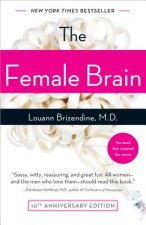
Female Brain
17.18 € -5 % -
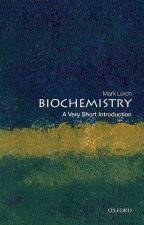
Biochemistry: A Very Short Introduction
9.09 € -26 % -

Cell Death Techniques: A Laboratory Manual
90.68 € -

Biochemistry, Fourth Edition International Adaptation
72.78 € -4 % -
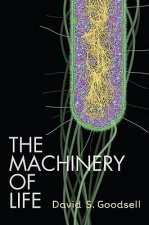
Machinery of Life
31.84 € -17 % -

Modern Optical Spectroscopy
106.65 € -4 % -

Wilson and Walker's Principles and Techniques of Biochemistry and Molecular Biology
46.39 € -15 % -

DHEA Breakthrough
8.28 € -18 % -

Voet's Principles of Biochemistry, 5th Edition Glo bal Edition
72.07 € -7 % -
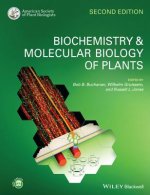
Biochemistry and Molecular Biology of Plants 2e
129.50 € -8 % -

Exercise Biochemistry
137.99 € -10 % -
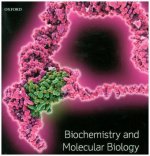
Biochemistry and Molecular Biology
69.04 € -3 % -
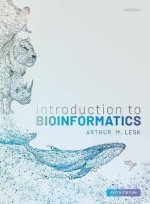
Introduction to Bioinformatics
154.37 € -

Ice Cream
103.01 € -
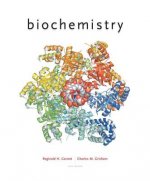
Biochemistry
107.46 € -

BIOS Instant Notes in Biochemistry
34.77 € -4 % -
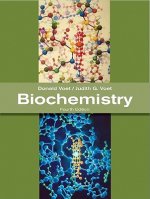
Biochemistry
409.94 € -

Protein Structure and Function
92.90 € -4 % -

Medical Biochemistry Principles for Medical Students
22.74 € -

Cell: A Very Short Introduction
9.29 € -28 % -

Plant Biochemistry
124.64 € -

Environmental Soil Biology
121.31 € -

Polar Lipids
130 € -

Olive and Olive Oil Bioactive Constituents
130 € -

Integrative Biology of Women's Health
186.62 € -

Advanced Molecular Genetics
169.63 € -

Biochemistry
53.27 € -
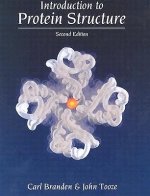
Introduction to Protein Structure
109.08 € -

Marks' Essentials of Medical Biochemistry
112.71 € -
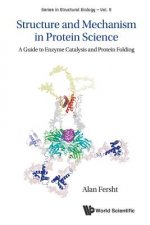
Structure And Mechanism In Protein Science: A Guide To Enzyme Catalysis And Protein Folding
89.87 € -
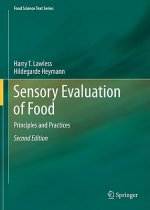
Sensory Evaluation of Food
85.01 € -13 % -

Pulp and Paper Industry
200.67 € -
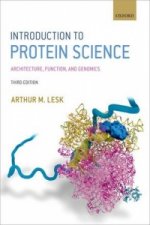
Introduction to Protein Science
77.03 € -4 % -

Introduction to Proteins
112.71 € -4 % -
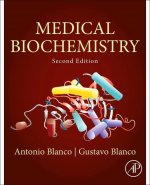
Medical Biochemistry
158.31 € -

Schaum's Outline of Biochemistry, Third Edition
29.91 € -20 % -
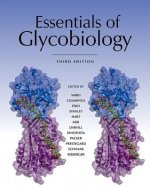
Essentials of Glycobiology, Third Edition
192.48 € -

Case Files Biochemistry 3/E
49.12 € -
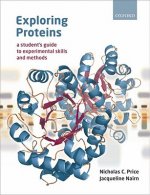
Exploring Proteins
65.30 € -
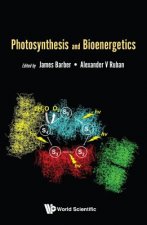
Photosynthesis And Bioenergetics
148.91 € -
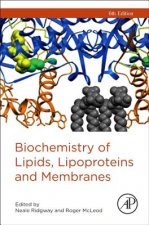
Biochemistry of Lipids, Lipoproteins and Membranes
112.51 € -

Bioavailability, Leachability, Chemical Speciation, and Bioremediation of Heavy Metals in the Process of Composting
156.69 € -

Introduction to Bioorganic Chemistry and Chemical Biology
102.10 € -5 % -

Bioenergetics
83.60 € -4 % -

Chemistry and Biochemistry of the Amino Acids
109.38 € -

Proteomics Protocols Handbook
367.08 € -

Protein Engineering Techniques
61.56 € -

Chemistry of Life
13.33 € -28 % -
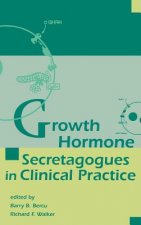
Growth Hormone Secretagogues in Clinical Practice
444.62 €
Osobní odběr Bratislava a 2642 dalších
Copyright ©2008-24 najlacnejsie-knihy.sk Wszelkie prawa zastrzeżonePrywatnieCookies


 Vrácení do měsíce
Vrácení do měsíce Zdarma od 49.99 €
Zdarma od 49.99 € 02/210 210 99 (8-15.30h)
02/210 210 99 (8-15.30h)